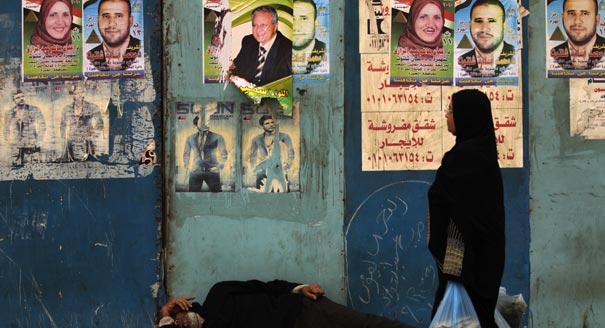Referendum date: March 19, 2011. Polling will be conducted between the hours of 8:00 a.m. and 7:00 p.m.
Number of eligible voters: Approximately 45 million Egyptians over the age of 18 are eligible to vote, excluding members of the judiciary, armed forces, and police.
Voter cards: Voting will be conducted with national ID cards, rather than voting cards, as has been the practice in past referenda and elections.
Referendum administration: The Supreme Council of the Armed Forces, Egypt’s military leadership, has appointed a committee of judicial authorities to supervise the referendum process. The 7-member committee, headed by First Deputy Chairman of the State Council Mohamed Attiyeh, is responsible for defining the rules governing voting and counting procedures and will announce the final results of the referendum.
Judicial supervision: An estimated 16,000 members of the judiciary will supervise voting and counting procedures at over 54,000 polling stations nationwide. A subcommittee staffed by judicial authorities will be responsible for overseeing every ballot box.
Security presence: 28,000 soldiers and 8,000 police officers will be on hand to maintain order at voting sites, but they are prohibited from entering a polling station without the permission of the chairman of the supervising judicial subcommittee.
Civil society monitoring: Independent of the official election administrators, several Egyptian civil society organizations plan to monitor the referendum through on-the-ground observation as well as social media and blogging tools. The judicial committee supervising the referendum has stated that Egyptian as well as international organizations and members of the media will be permitted to enter polling stations for observation purposes.
Amendments overview:
The constitutional reform committee appointed by the Supreme Council of the Armed Forces (SCAF) announced several proposed revisions to Egypt's constitution on February 26. The package of amendments must be approved or defeated as a bloc.
- Article 75: Introduces new eligibility requirements for presidential candidates. The president must be an Egyptian without dual nationality. A candidate would be ineligible to run for office if he/she or either of his/her parents has ever held citizenship in a country other than Egypt, or if he/she is married to a non-Egyptian.
- Article 76: Eases restrictions on the eligibility of presidential candidates. In order to get on the ballot, presidential candidates must either obtain the support of 30 members of parliament; have the backing of 30,000 eligible voters from at least 15 different governorates; or be nominated by a registered political party with at least one representative in the Shura Council or People's Assembly.
- Article 77: Reduces the president's term to four years and establishes a two-term limit.
- Article 88: Restores full judicial supervision. All voting and counting procedures will be directly supervised by members of the judiciary from start to finish of the elections period.
- Article 93: Gives the Court of Cassation (the highest appeal court) the authority to decide and enforce challenges to disputed parliamentary races. (Under the constitution before these revisions , the People's Assembly was the exclusive arbiter of court challenges to election results.)
- Article 139: Requires the president to appoint a vice president within 60 days of taking office.
- Article 148: Restricts the conditions under which the president may declare a state of emergency. Under the revised article, a state of emergency cannot be declared without the approval of a parliamentary majority. The state of emergency cannot exceed six months unless an extension is authorized through a popular referendum.
- Article 179: The cancellation of article 179 removes controversial counter-terrorism provisions that allowed for the trial of civilians in military courts and authorized invasive surveillance measures.
- Article 189: Preserves the original procedure for amending the constitution (amendments can be proposed by either the president or the People’s Assembly and must be approved by a parliamentary majority as well as a popular referendum), but also adds provisions for redrafting the constitution in its entirety. Under the amended text, the president and parliament are obligated to appoint a 100-member constituent assembly within six months of elections to rewrite the constitution over the course of a subsequent six-month period, after which the document will be subject to a popular referendum.
Resources:
- Official referendum website: http://www.referendum.eg/homepage.html
- Official Facebook page of the committee supervising the referendum: http://www.facebook.com/#!/EgyRef2011



